Exhaust Repair FAQ and Help
#1
Lexus Champion
Thread Starter
So, I'm writing this up right now and will include pretty pictures! This is my long -age promised thing [gosh, june?]....
WORK IN PROCESS
OK, let me begin. From time to time, your car will have an exhaust leak. Sometimes you can hear it, you smell it, you can feel it or you notice the performance/ torque curve changes for your engine. There is the possibility that none of these will be noticed, but there may still be a leak.
If there is a leak, and you have any hints at it, you must address it immediately. Your engine outputs CO [carbon monoxide] in small amounts that can build up in your cabin [inside the car] and you can loose consciousness, expire, or incur reduced concentration – all of which can lead to you crashing your vehicle. It's also bad for your health to breath the exhaust.
From time to time, your exhaust system should be inspected. How often is determined by your area's mechanics' advice. In some places, the exhaust rarely rusts. In others, cars go through exhaust parts in only three years. The Lexus exhaust, historically, tends to be made with high quality materials so it does tend to last much longer than most cars. Always, the exhaust should be inspected if the driver or mechanic suspects any problems. / see What are health effects of Carbon Monoxide? http://yosemite.epa.gov/R10/airpage....bon%20Monoxide /
First, on my ES 300, the exhaust system lasted a long time. The previous owner replaced the y-pipe [also called the mid-pipe or down-pipe and other things] because he told me the flex part started leaking. He bought a new one, he said, through Lexus. /see 2/
Immediately after purchase, there was a leak. The most obvious was between the y pipe and the catalytic converter. /see 1, 2 , 10/
Now, I had very few funds to ever repair this the way I would have liked – replacing everything with new Lexus, or better parts. I had to fix only what was bad the cheapest way possible.
So, I separated the pipe from the cat, and changed the bolts. The bolts were rusted badly, but I've seen worse where the parts do the rust-melt-together thing. But there was nothing wrong with the faces so my tools had plenty of grip. I hurt my hands, though, pulling so hard, while working on the car on jack stands in a driveway.
I observed there was a gap in the metal – from either or both the exhaust gases passing through the gap, or from the metal of the catalytic converter's flange becoming misshapen as it rust-melted-together with the previous y-pipe.
I decided the cheapest thing to try would be t oget a new gasket, new bolts, nuts, flat washers and put all around nice thick amount of RED Permatex RTV. / see http://www.permatex.com/products/Aut...sket_Maker.htm /
This helped. I let it dry for the recommended 24 hours. Unlike most paints, RTV likes humiditity [and temperature] when curing. Eventually, perhaps after driving for a short. But after driving for a short while, it sprouted a very small leak in the center of the worst part of the missing metal/gap.
The exhaust was more sealed. This revealed further leaks. The problems were the gaskets between the y-pipe and the exhaust manifolds making a fluttering sound on engine acceleration and deceleration [rev up and down]. There was a bad leak because the engine ran a little rough sometimes once on the highway for a while or at idle, and I could smell the exhaust in the cabin unless I turned the HVAC control setting to all-the-way cold [as this makes the system go into recirculation mode, where 30% or less fresh air is allowed in].
WORK IN PROCESS
OK, let me begin. From time to time, your car will have an exhaust leak. Sometimes you can hear it, you smell it, you can feel it or you notice the performance/ torque curve changes for your engine. There is the possibility that none of these will be noticed, but there may still be a leak.
If there is a leak, and you have any hints at it, you must address it immediately. Your engine outputs CO [carbon monoxide] in small amounts that can build up in your cabin [inside the car] and you can loose consciousness, expire, or incur reduced concentration – all of which can lead to you crashing your vehicle. It's also bad for your health to breath the exhaust.
From time to time, your exhaust system should be inspected. How often is determined by your area's mechanics' advice. In some places, the exhaust rarely rusts. In others, cars go through exhaust parts in only three years. The Lexus exhaust, historically, tends to be made with high quality materials so it does tend to last much longer than most cars. Always, the exhaust should be inspected if the driver or mechanic suspects any problems. / see What are health effects of Carbon Monoxide? http://yosemite.epa.gov/R10/airpage....bon%20Monoxide /
First, on my ES 300, the exhaust system lasted a long time. The previous owner replaced the y-pipe [also called the mid-pipe or down-pipe and other things] because he told me the flex part started leaking. He bought a new one, he said, through Lexus. /see 2/
Immediately after purchase, there was a leak. The most obvious was between the y pipe and the catalytic converter. /see 1, 2 , 10/
Now, I had very few funds to ever repair this the way I would have liked – replacing everything with new Lexus, or better parts. I had to fix only what was bad the cheapest way possible.
So, I separated the pipe from the cat, and changed the bolts. The bolts were rusted badly, but I've seen worse where the parts do the rust-melt-together thing. But there was nothing wrong with the faces so my tools had plenty of grip. I hurt my hands, though, pulling so hard, while working on the car on jack stands in a driveway.
I observed there was a gap in the metal – from either or both the exhaust gases passing through the gap, or from the metal of the catalytic converter's flange becoming misshapen as it rust-melted-together with the previous y-pipe.
I decided the cheapest thing to try would be t oget a new gasket, new bolts, nuts, flat washers and put all around nice thick amount of RED Permatex RTV. / see http://www.permatex.com/products/Aut...sket_Maker.htm /
This helped. I let it dry for the recommended 24 hours. Unlike most paints, RTV likes humiditity [and temperature] when curing. Eventually, perhaps after driving for a short. But after driving for a short while, it sprouted a very small leak in the center of the worst part of the missing metal/gap.
The exhaust was more sealed. This revealed further leaks. The problems were the gaskets between the y-pipe and the exhaust manifolds making a fluttering sound on engine acceleration and deceleration [rev up and down]. There was a bad leak because the engine ran a little rough sometimes once on the highway for a while or at idle, and I could smell the exhaust in the cabin unless I turned the HVAC control setting to all-the-way cold [as this makes the system go into recirculation mode, where 30% or less fresh air is allowed in].
Last edited by llcoolpass; 11-12-09 at 12:59 PM.
#2
Lexus Champion
Thread Starter
WORK IN PROCESS
So,here's the deal – here's where many shade tree mechanics go wrong – and what most of the people who are looking for something helpful will gain from this thread from my main story here.
Many people know they have a leak either at the Cat-to-Y-pipe flange or at the exhaust manifold to y-pipe flange, or at the exhaust manifold to the head [gasket or warpage] or a leak in the exhaust manifold.
This said, I recommend that you change these gaskets , any warped parts or parts with warped flanges, and all new bolts nuts washer .. and make sure its all oil free.
I noted the old age of the manifold and the studs-- one of them would unscrew from the manifold. And the threads were all messed up in the manifold. Try to clean up with a tap, you will just have poor rsults. It all has to be ''perfect'' if you want to be able to torque it down evenly and properly. And thats the problem with only 2 and why you must do what I recommend if the above applies.
I drilled out the old holes in the exhaust manifold to a bigger size of 7/16”. The previous hole was drilled, then taped by the factory , to M10x1.25. The factory would recommend you torque down the nuts at the manifold to down pipe to 46 lb*ft. But if you do my thing, that would be wrong--- let me explain. I bought 8.8 grade bolts [correctly, “hex head cap screws”], M10x1.25 50mm length********, with new nuts, four flat-washers per bolt, two lock-washers per bolt. I got this stuff at Home depot, likely also at Lowe's, maybe maybe-not your local Mom & Pop hardware store.
/see ****************** / I looked up the proper torque for this bolt – it's 41 lb*ft because it's plated. You should go in stages when torquing stuff especially with gaskets. I did 20, then 30, then 36, then 41. For each torque value, I do one bolts/nut then the other, then repeat.
Due to shape of the metal on the manifold, one of the holes is not flat and has a raise part. This necessitates removing part of the washer. I recommend one washer at this part, instead of two, followed by the lock washer due to that part of the manifold that sticks up.
So,here's the deal – here's where many shade tree mechanics go wrong – and what most of the people who are looking for something helpful will gain from this thread from my main story here.
Many people know they have a leak either at the Cat-to-Y-pipe flange or at the exhaust manifold to y-pipe flange, or at the exhaust manifold to the head [gasket or warpage] or a leak in the exhaust manifold.
- But what many of you don't realize is that the bolts themselves – the studs more accurately- in the exhaust manifold are the culprit.
- The exhaust manifold are well-made, and thick and tend to stay flat and warp-free. There would have to be some serious events to cause damage to them. They are not known to grow holes like old american cars in the past did, if you searched on google you might have read about these cars. The flanges don't tend to warp either. They are thick.
- The studs , only two per flange, are the weakness. Also, if there is severe rust on any flange, both parts will have to be replaced – both things being joined. Don't try to RTV is or do weird gaskets or anything.
- Many V6 FWD cars will have three bolts on these flanges. On Engine acceleration and deceleration, there is a lot of fore and aft movement. This causes stress on the y-pipe-to-exhaust-manifold flanges, bolts, gaskets – the two flex pipes on the ES 300 are meant to minimize this as much as possible.
- When torquing a bolt, the bolt has to be in good shape – good integrity , not stretched, good threads, the nut must be the same way-- and the torque value is determined by whether they are clean threads and the material of the bolt itself!
This said, I recommend that you change these gaskets , any warped parts or parts with warped flanges, and all new bolts nuts washer .. and make sure its all oil free.
I noted the old age of the manifold and the studs-- one of them would unscrew from the manifold. And the threads were all messed up in the manifold. Try to clean up with a tap, you will just have poor rsults. It all has to be ''perfect'' if you want to be able to torque it down evenly and properly. And thats the problem with only 2 and why you must do what I recommend if the above applies.
I drilled out the old holes in the exhaust manifold to a bigger size of 7/16”. The previous hole was drilled, then taped by the factory , to M10x1.25. The factory would recommend you torque down the nuts at the manifold to down pipe to 46 lb*ft. But if you do my thing, that would be wrong--- let me explain. I bought 8.8 grade bolts [correctly, “hex head cap screws”], M10x1.25 50mm length********, with new nuts, four flat-washers per bolt, two lock-washers per bolt. I got this stuff at Home depot, likely also at Lowe's, maybe maybe-not your local Mom & Pop hardware store.
/see ****************** / I looked up the proper torque for this bolt – it's 41 lb*ft because it's plated. You should go in stages when torquing stuff especially with gaskets. I did 20, then 30, then 36, then 41. For each torque value, I do one bolts/nut then the other, then repeat.
Due to shape of the metal on the manifold, one of the holes is not flat and has a raise part. This necessitates removing part of the washer. I recommend one washer at this part, instead of two, followed by the lock washer due to that part of the manifold that sticks up.
Last edited by llcoolpass; 11-12-09 at 01:01 PM.
#3
Lexus Champion
Thread Starter
Image 1

Image 2
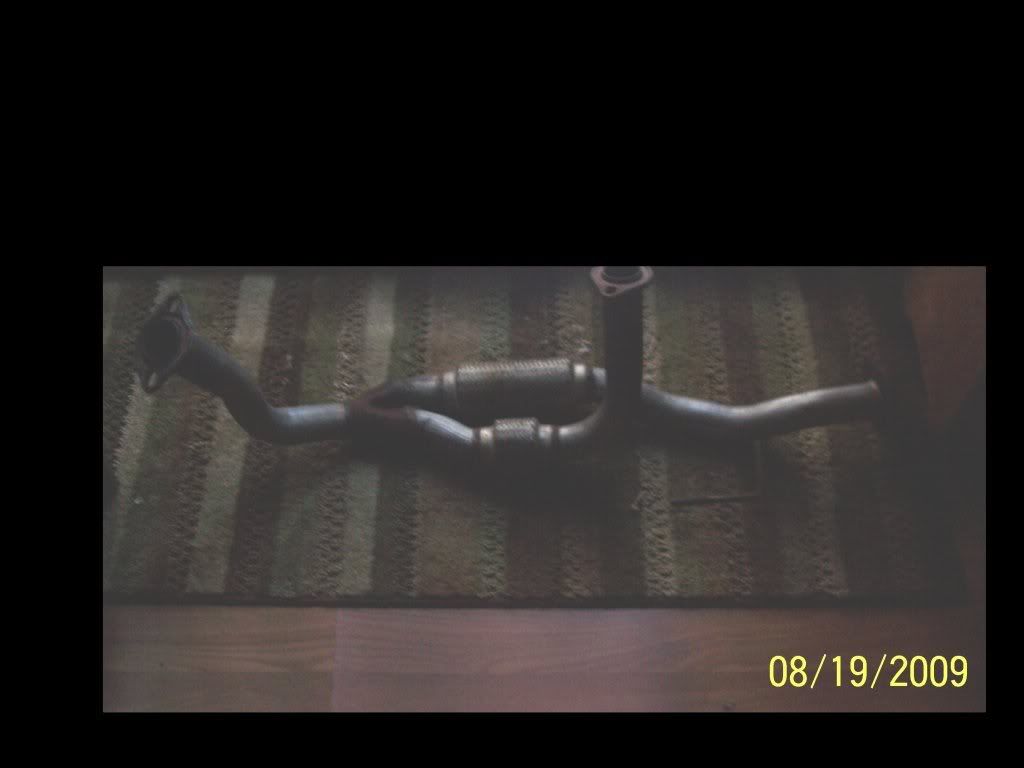
Image 3
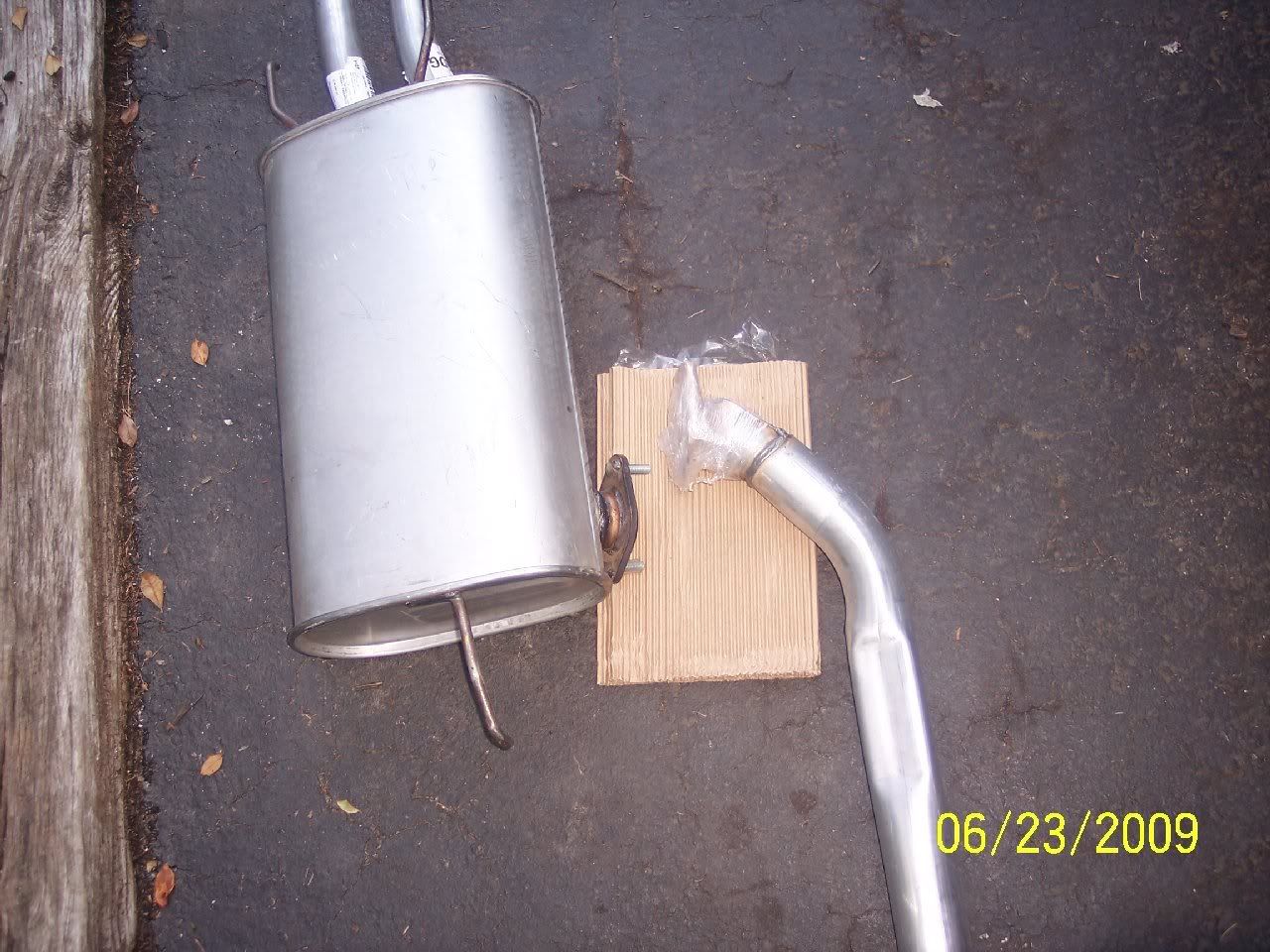
image 4
Image 5
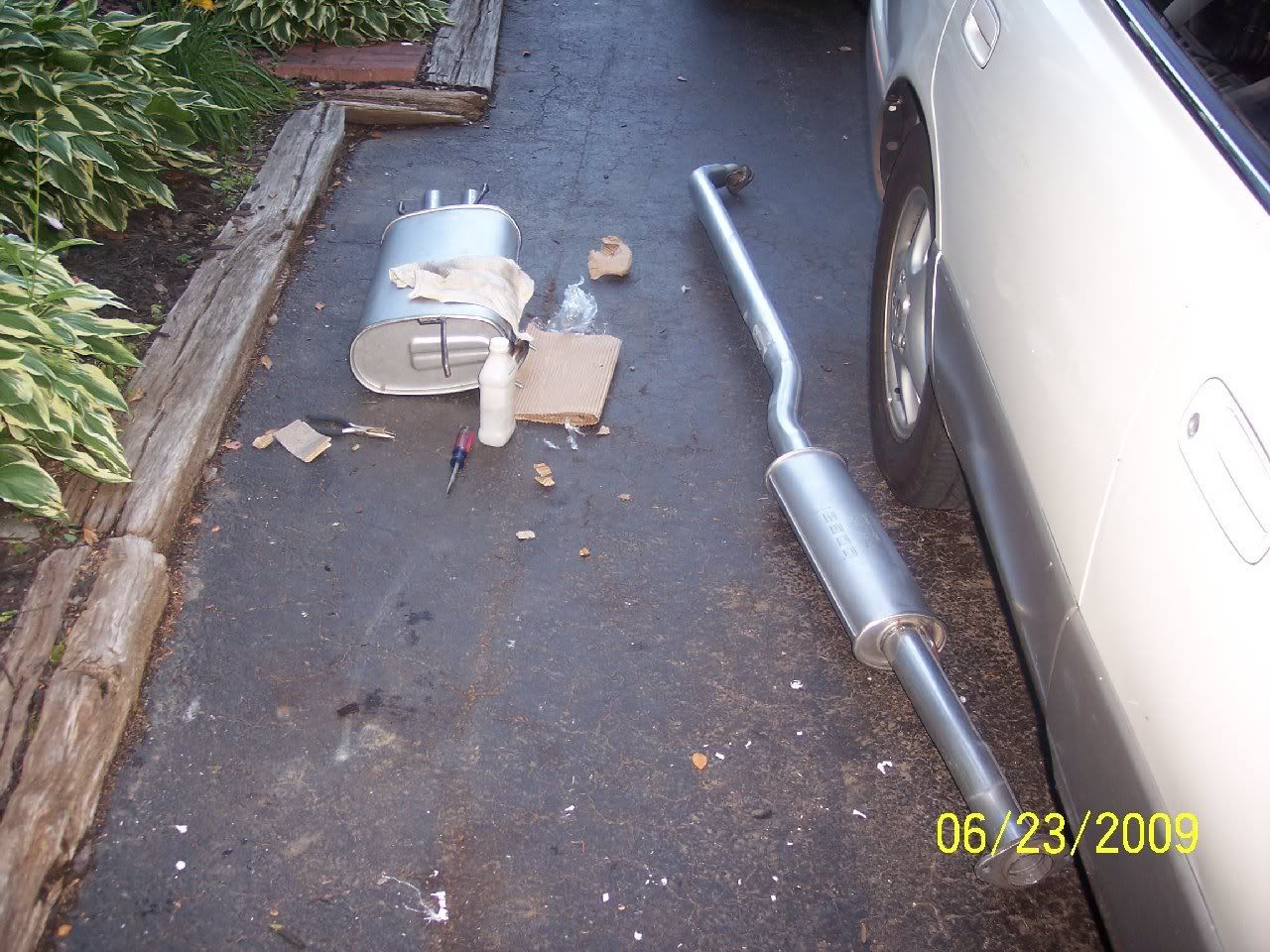
Image 6
Image 7
Image 8
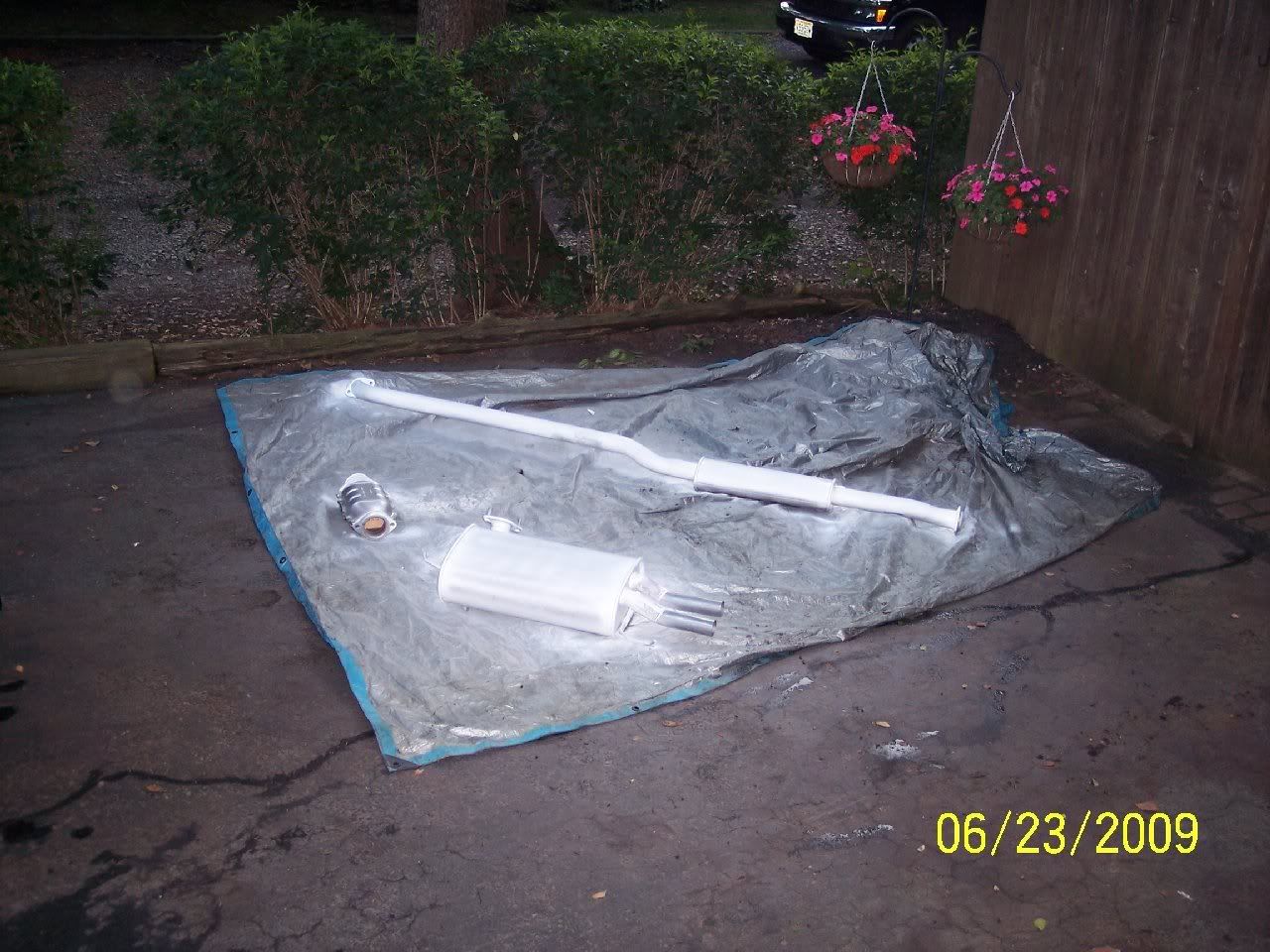
Image 9
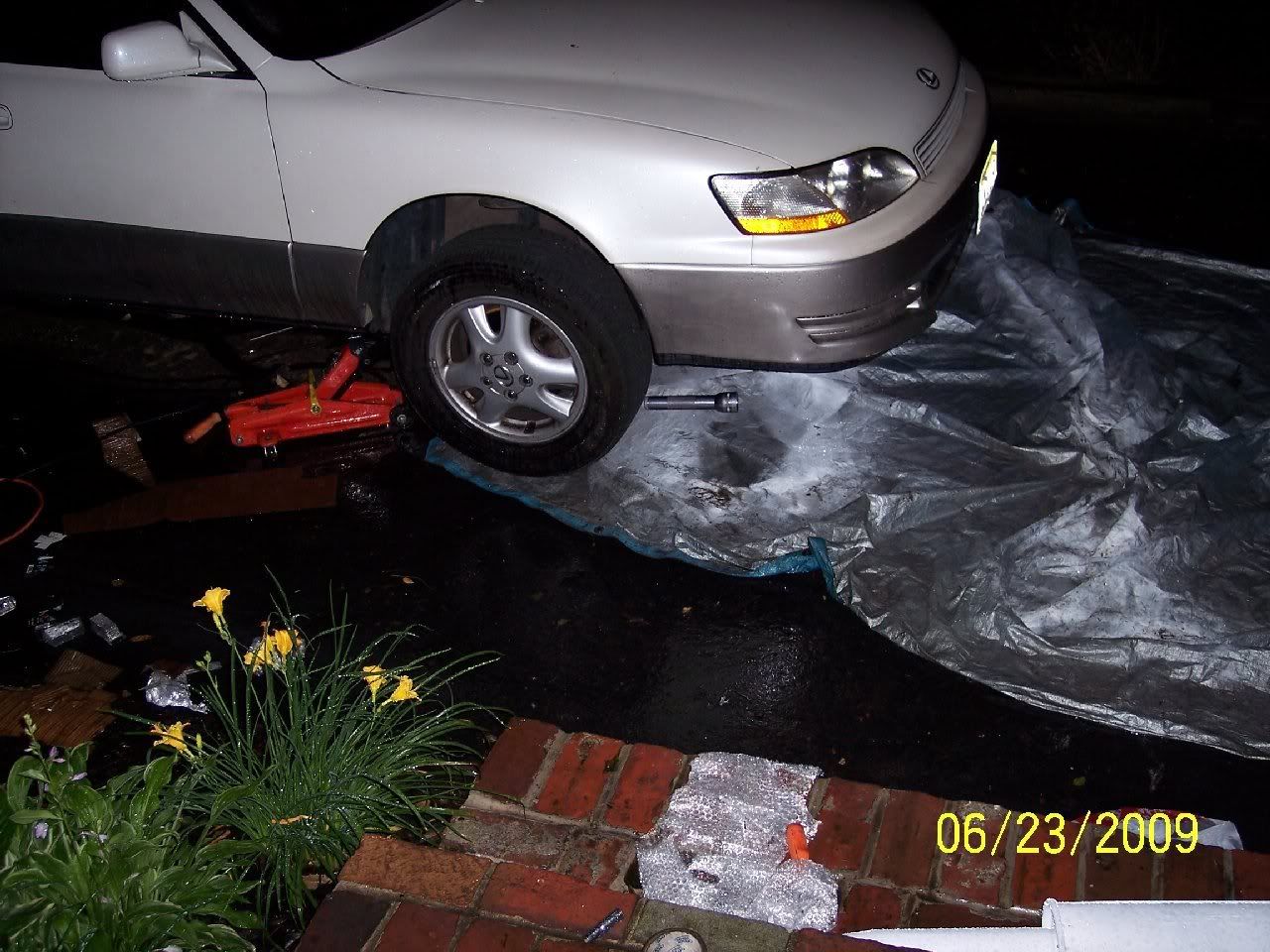
Image 10
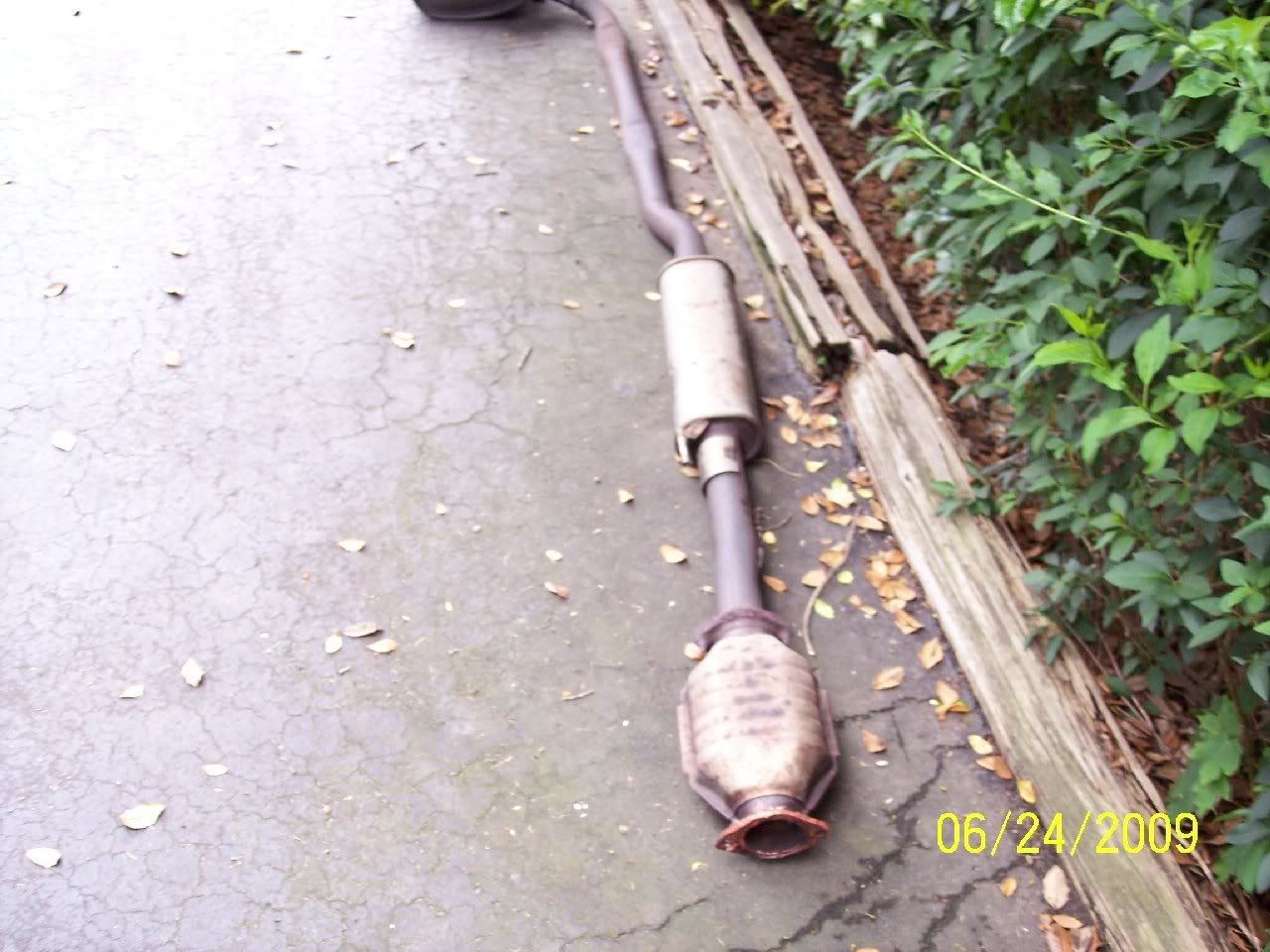
Image 11
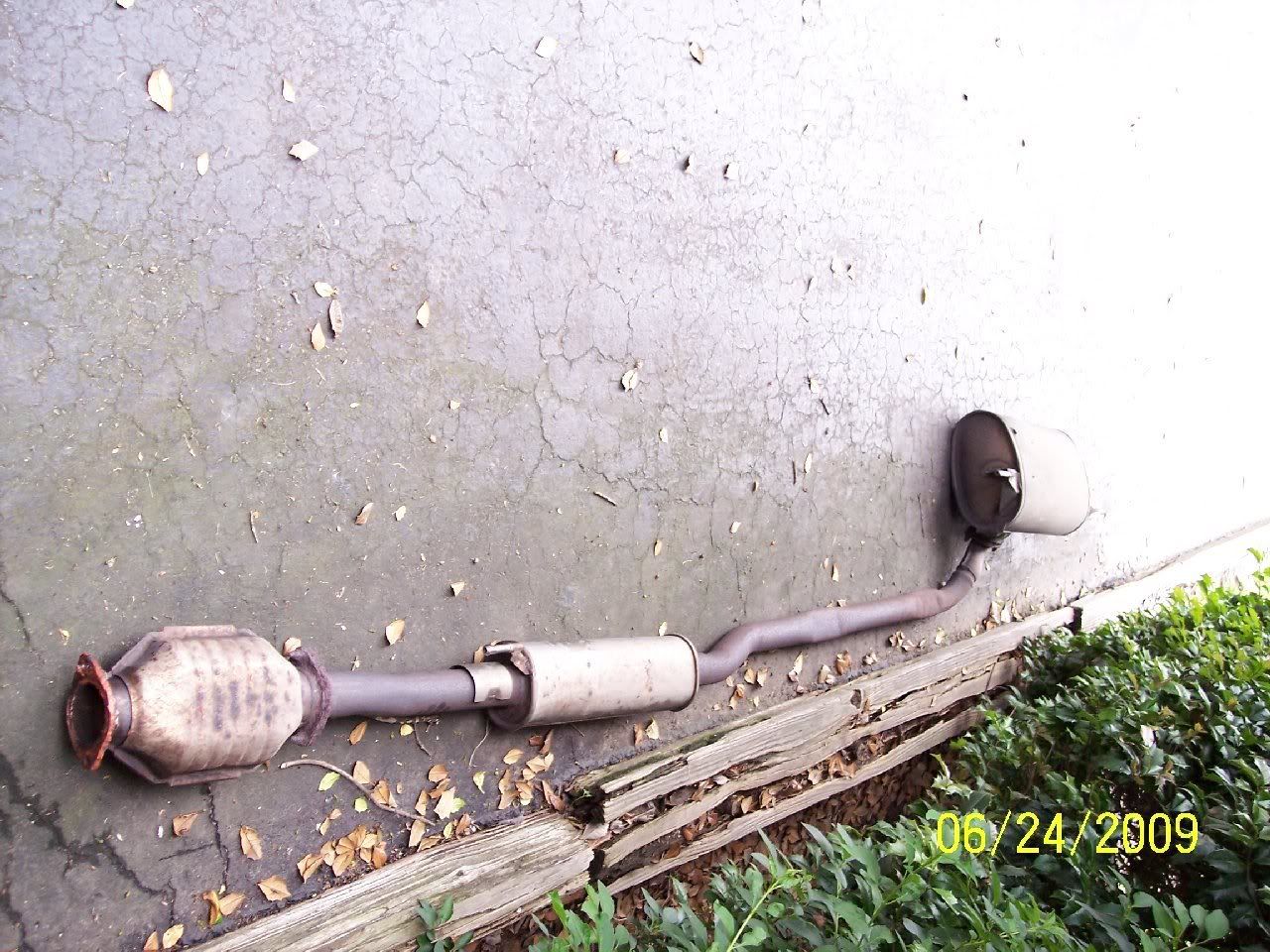
Image 12
Image 13
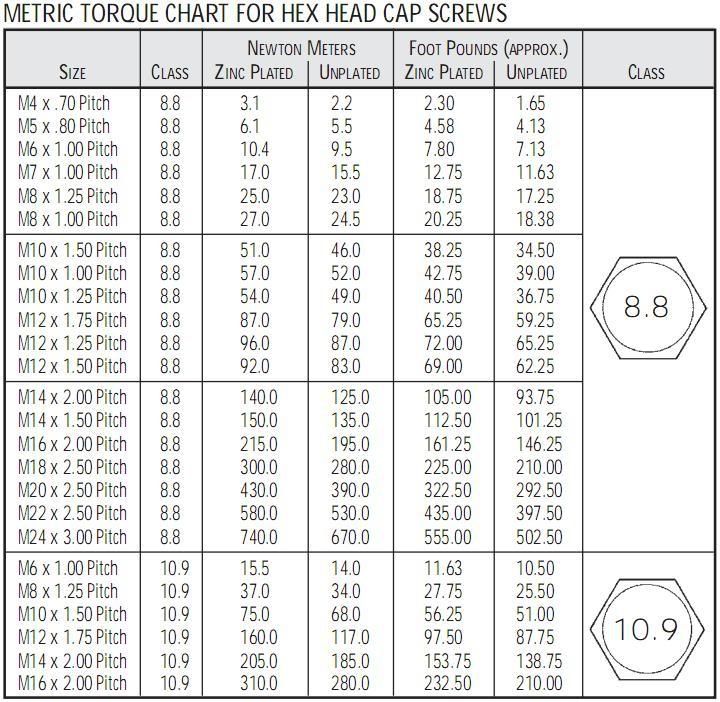
image 14
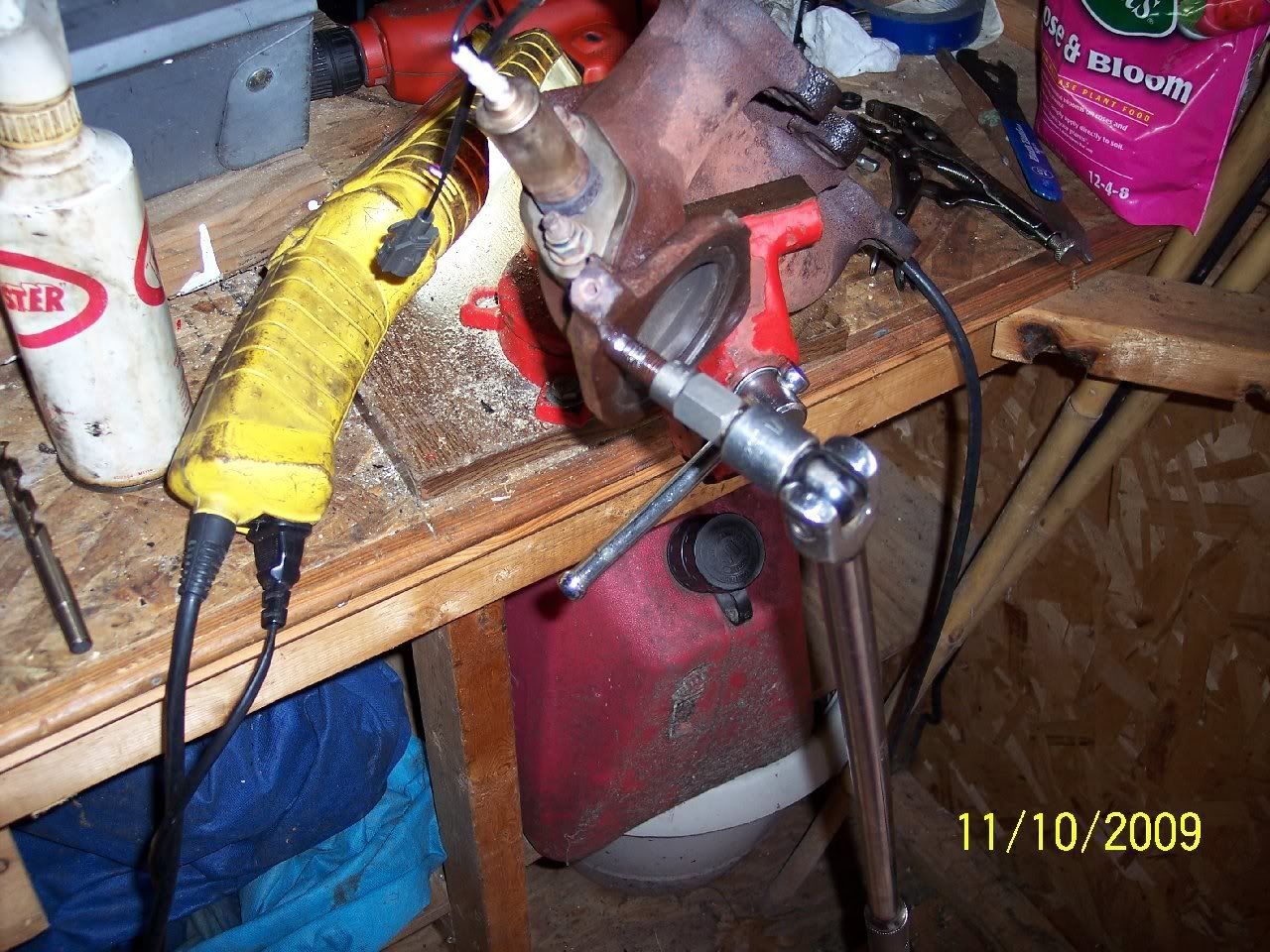
image 15
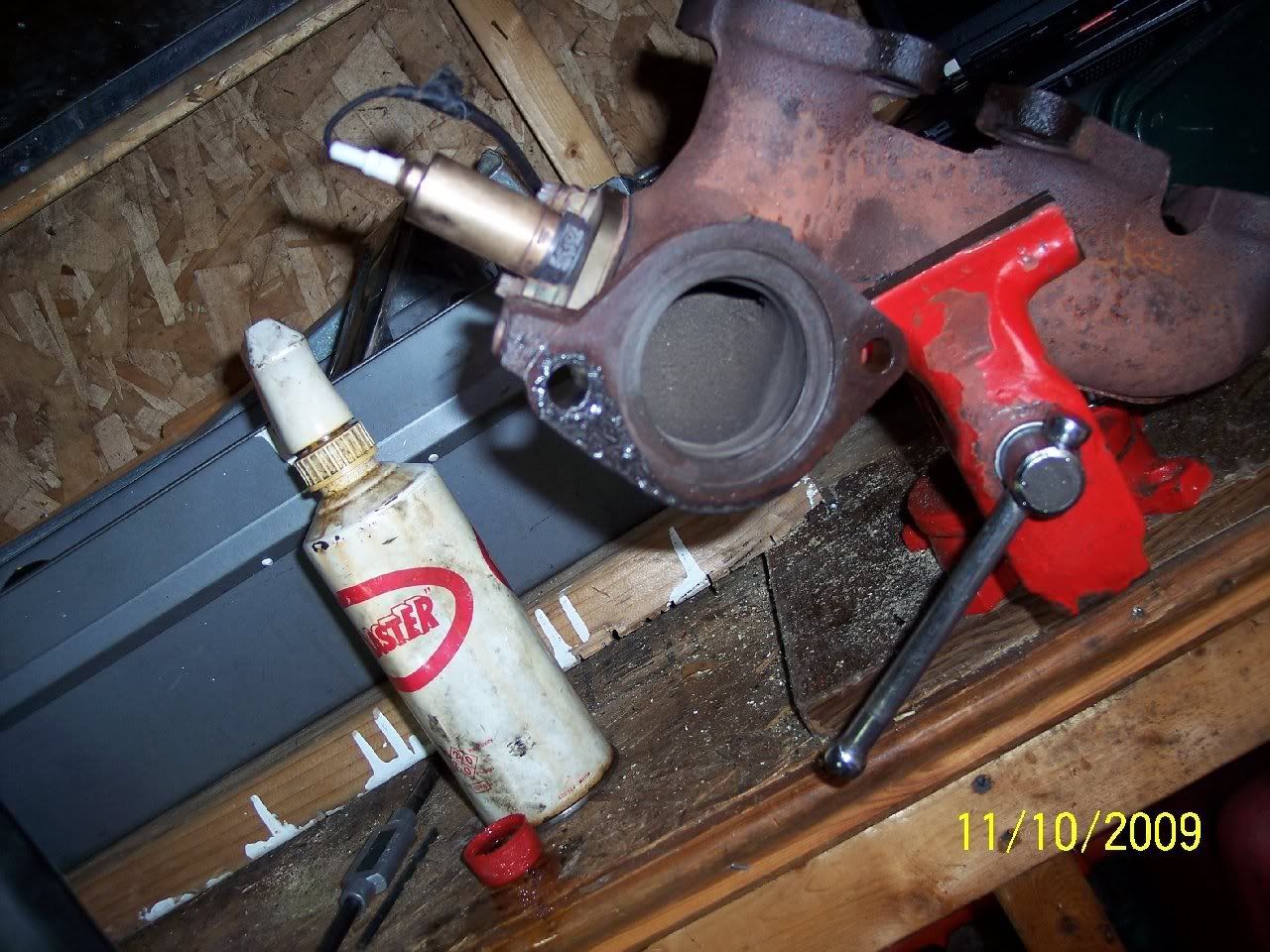
IMAGE 16
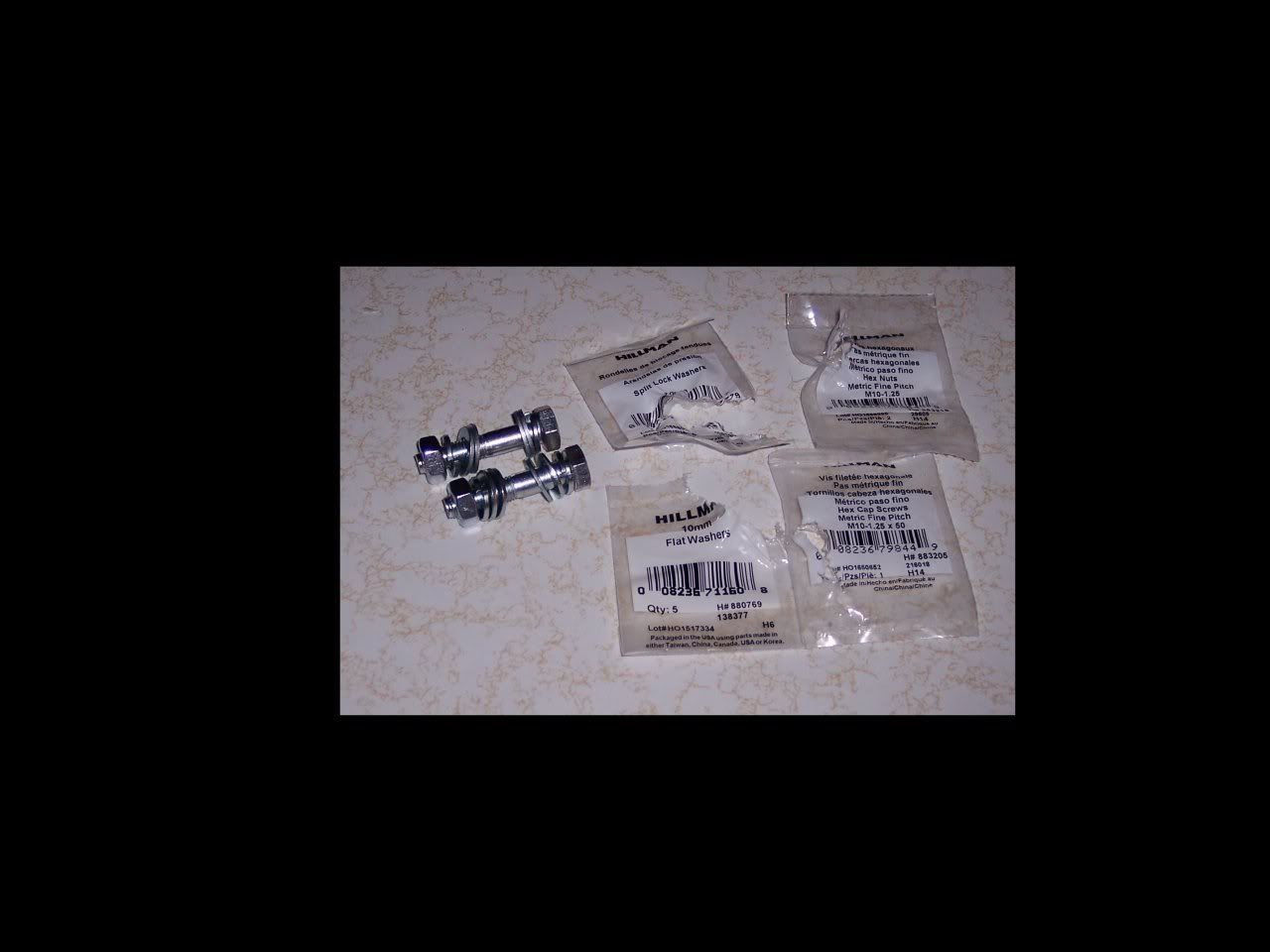
IMAGE 17
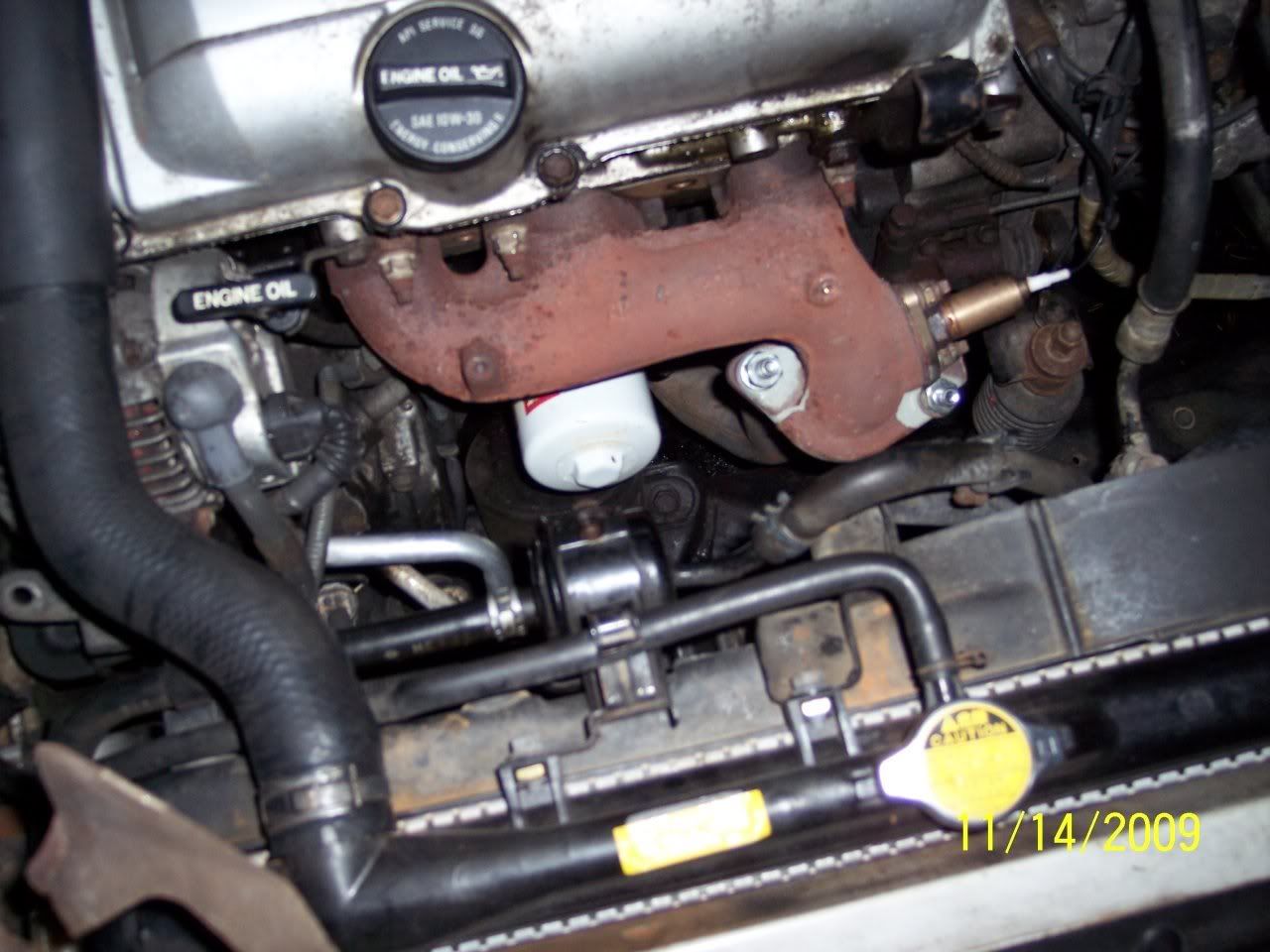

Image 2

Image 3

image 4
Image 5

Image 6
Image 7
Image 8

Image 9

Image 10

Image 11

Image 12
Image 13

image 14

image 15

IMAGE 16

IMAGE 17

Last edited by llcoolpass; 11-15-09 at 10:07 AM.
Thread
Thread Starter
Forum
Replies
Last Post
thaeleelyr
RX - 1st Gen (1999-2003)
10
01-16-13 05:21 PM



